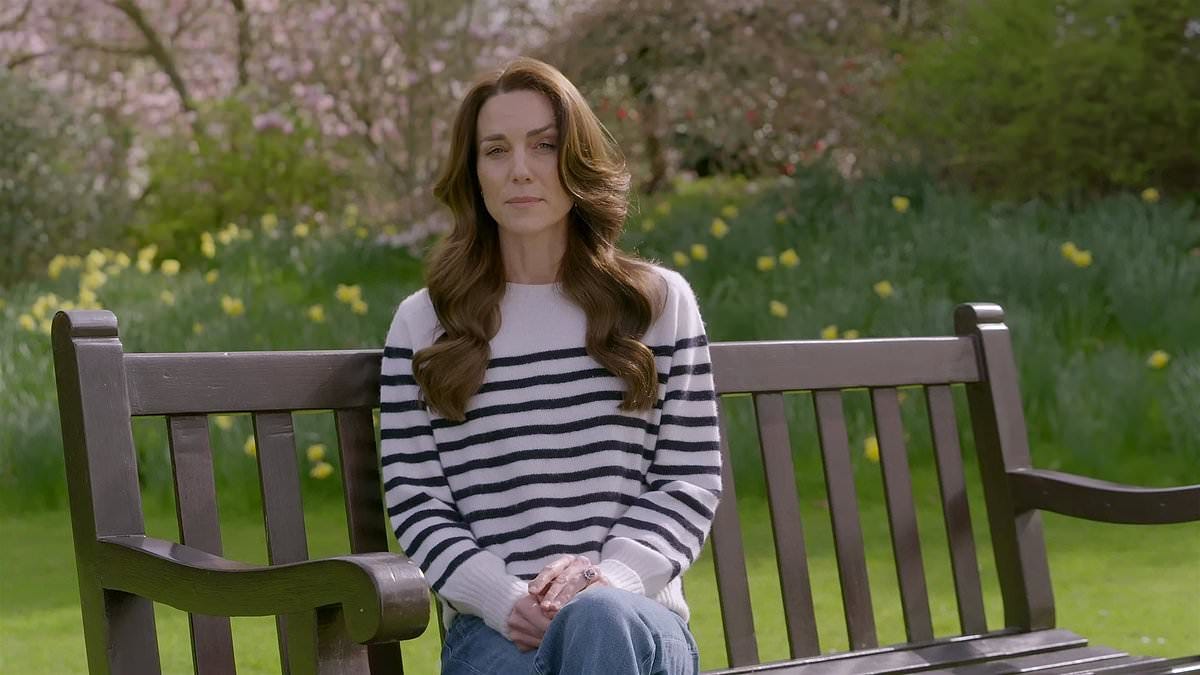Andrew MacDougall: Move over, legacy press. Social media writes the first draft of history now
The Princess of Wales must balance her battle against cancer with her battle against online mis/disinformation.
By: Andrew MacDougall
If nature abhors a vacuum, what does she make of the internet and social media?
Strike that. What does Kensington Palace think of vacuums and social media? Well, Friday evening’s sad video from the Princess of Wales announcing her cancer diagnosis offers a clue, if not a solution to nature or any of her vacuums. The void of “Where’s Kate?” has now been filled.
Only it hasn’t. If anything, another void has been created and other vacuums are now being rushed into with filler. The rampant speculation of “Where’s Kate?” that flooded social media for much of the past few months is now being replaced by speculation about “What’s really wrong with Kate?” Welcome to our new online information casino, where any punter can play with any kind of currency, whether real or fake.
Put differently, the Royal Family needs to understand the fight they’re in, not the fights they’re used to or the fights they wished they had. The days of “Never complain, never explain” are over. So, too, are the days where the monarchy could exist as some mysterious force. Most importantly, gone are the days when a quiet deal could be struck with the arbiters of information — i.e. the press — in return for a (relatively) quiet life. Filling a newspaper void and filling an internet void are two very different things. More to the point, the press are no longer the arbiters of information. The traditional news media now write the second draft of history, not the first. Social media now gets the first crack.
Even the tone from commentators in the press following the Princess’ announcement shows how few lessons we’ve all learned. Yes, we should feel shame about how we traded in gossip and speculation. We should all feel like louts for imagining scenarios a mile wide from the reality of a young mother to young children having cancer, that most detestable of all diseases.
But we won’t. The internet and social media are powered by adrenaline and supposition, and so on we will go, filling whatever void we find with whatever we can dream up to fill it. This is our new reality and there is no point raging against it. These new platforms reward whatever we’ll click on, not what’s true. Or fair.
As politicians and public figures around the world are figuring out daily, from Rishi Sunak to Prince Harry and Meghan Markle, the internet and social media forces you to stay one step ahead of the news cycle, throwing out chum every waking minute to feed the beast, without any time to stress test your response to each twist and turn. For example, in offering up the Princess of Wales’ sloppy photoshopping skills as an explanation for that photo, did the Palace foresee a world in which they would later, in effect, be blaming a busy mother with cancer for a mistake no one on earth believes she made? I’m guessing not. But the internet makes fools of us all.
The internet and social media also con us into believing we’re experts about everything under the sun. Just as COVID brought forward an army of amateur virologists, and as Russia’s invasion of Ukraine brought forward legions of battleground tacticians, the latest wobble from the Wales’ camera operation turned us all into photo editors. And where the organs of the mainstream press would once have screened out these low-quality takes, the internet now lets them live forever. Even worse, the algorithms of social media will now actively put these skewed takes into our feeds because they hold our attention and draw our “engagement.” Conspiracy is quite literally how these platforms make a lot of their money.
Not that this relentless quest for cash stopped Linda Yaccarino, Elon’s sanity beard at X/Twitter, from wading into the reaction over the Kate video. “A brave message delivered … with her signature grace,” Yaccarino tweeted. “(Princess Kate’s) request for privacy, to protect her children and allow her to move forward (without endless speculation) seems like a reasonable request to respect,” she added.
Yaccarino’s comment reached all the way into Kensington Palace, with "friends" of Will & Kate briefing the press that “for (Yaccarino) to come out and say that gives us hope.” The "friends" went on to say: “There is so much misinformation out there. (Yaccarino) is in a position to do something about it.” I mean, forget cancer, it’s the hope that kills you.
What the parable of the Princess and the cancer diagnoses teaches us is that the Royal Family have yet to figure out the imperatives of the internet and social media. Whatever benefits it makes up for in terms of controlling the release of information, it later claws back in the form of rampant and uncontrollable speculation.
You can control what you put into this digital world; you cannot control what comes out of it.
Andrew MacDougall is a director at Trafalgar Strategy and former head of communications to Prime Minister Stephen Harper.
The Line is entirely reader funded — no federal subsidy for us! If you value our work and worry about what will happen when the conventional media finishes collapsing, please make a donation today.
The Line is Canada’s last, best hope for irreverent commentary. We reject bullshit. We love lively writing. Please consider supporting us by subscribing. Follow us on Twitter @the_lineca. Fight with us on Facebook. Pitch us something: lineeditor@protonmail.com



Andrew, you have described all my rationale for not having any involvement with social media. It’s a zoo and the inhabitants are free to roam at will.
Social media is rage farming....know thy enemy.